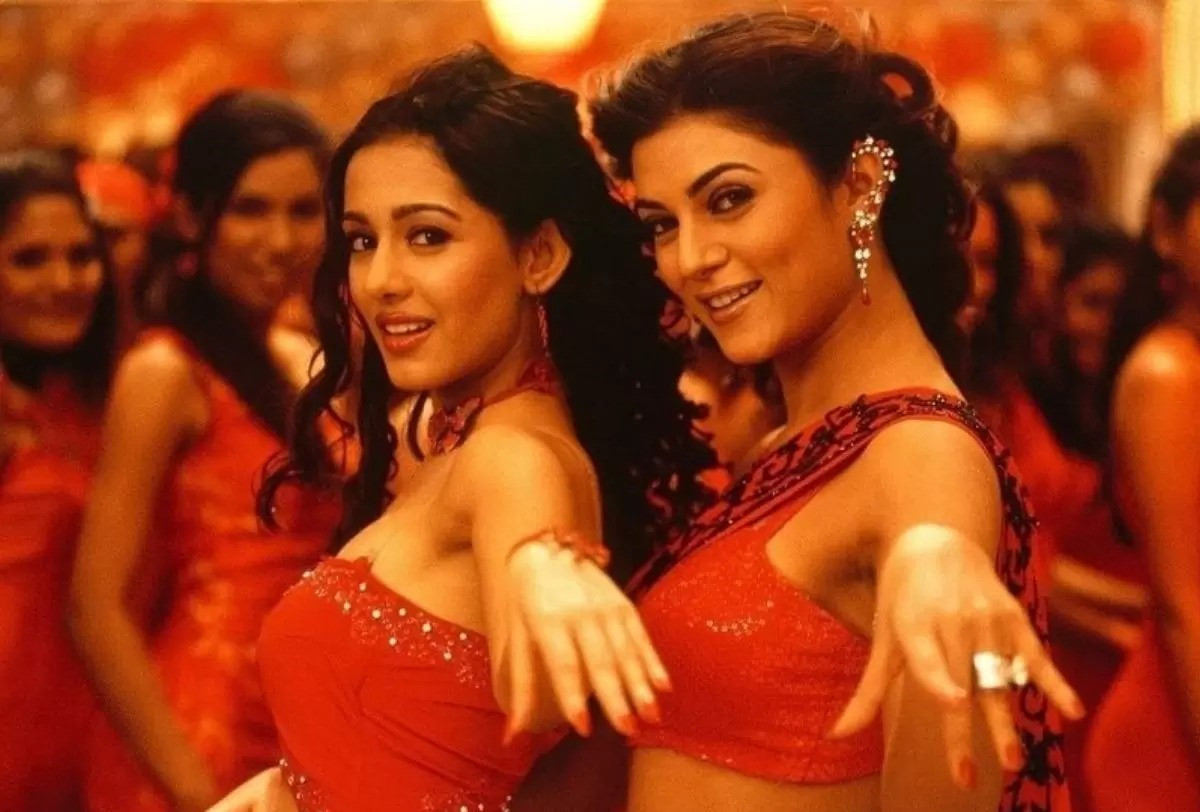‘Gori Tera Jhumka’ brings out fair-skinned maidens of Pakistani imagination with weak dance moves
Tired tropes of colourism and an absolute lack of on-screen chemistry between actors make the shadi song unimpressive
KARACHI:As per tradition, Pakistani filmmakers and film lovers are anticipating a host of cinematic offerings slated to hit the big screen this Eid-ul-Fitr. A separate hype can be allotted to filmi songs as the chhoti Eid also marks the onset of another wedding spell and resurrects the demand for wedding dance songs.
Pakistani filmmaker Wajahat Rauf is well familiar with this pulse. From the eponymous track of Chhalawa to Peela Rung from Parde Mein Rehne Do, the director’s last two Eid-ul-Fitr films made no secret of marketing wedding songs for the right moment. Now the man at the helm of yet another Eid film has dropped the ‘shadi song of the year,’ as per co-producer and Rauf’s wife Shazia Wajahat’s IG announcement.
Gori Tera Jhumka comes from the musical catalogue of Rauf’s fifth directorial feature Daghabaz Dil, starring Mehwish Hayat, Ali Rehman Khan and Momin Saqib, in another attempt to make the music genre his forte. As it embarks on its usual humdrum route, the song offers more to protest than laud or ignore.
The fair (skinned) maiden
A generation of Pakistanis have grown up singing, dancing or at least humming alongside Bollywood songs such as Gori Gori from Shah Rukh Khan’s iconic Mein Hoon Na. Whatever creative currency lyrical references to fairness enjoyed in 2004, continued in full force in 2017 when Kanika Kapoor partnered up with Meet Bros to give us Chittiyaan Kalaiyaan.
In a more local and dated scene, Vital Signs’ 1989 Goray Rang Ka Zamana might have been offset by its 1991 successor Sanwali Saloni Si Mehbooba but locates the obsession with fairness in music within a longer history. While Vital Signs might not have been privy to the pressing discourses on internalised racisms and its related stereotypes, a different consumer landscape surrounds Gori Tera Jhumka and its ode to fairness.

One need not attribute malicious intent to any artists involved to question the taken-for-granted liberty of romanticising the fair-skinned maiden that’s more in demand than in reality. Many reality checks, however, are due in the case Gori Tera Jhumka and Rauf’s quest to nail the perfect shadi song, starting with some due reflection on pervasive colourism and how it affects many before, during and after the wedding season.
It doesn’t necessarily require a viewing of the common man’s laundry to practise responsibility for what is put out for public consumption. Industry insiders such as Gohar Rasheed and Amna Ilyas have recurrently called out discriminatory attitudes within showbiz against actors whose skin colour resembles that of the wider populace of Pakistan. Being guilty of colourism is not unique to Daghabaz Dil but its case gestures towards a general disregard or disinterest in keeping up with new conversations and changes.
The perfect 'shadi' song
Even if this critique is set aside for espousing an impractical idealism, i.e. Pakistani artists must handle their platforms with responsibility, Gori Tera Jhumka runs into more rudimentary faults that prevent it from taking the crown for ‘shadi song of the year.’
While all subgenres within filmi songs share interlocking features, a good wedding dance song can be said to rely equal parts on visuals and sound. It’s not only that shadi songs need to be viable outside the screen but also must find their way to dance rehearsals and eventually, the dance floors of a shadi hall.
First and foremost, the song is afflicted by poor choreography that resists replication by ‘commoners’ and cannot even be salvaged by the actors’ stardom due to an absolute lack of on-screen chemistry. The dance moves have no interest in following the changing beats of the track, a discord that manifests most saliently during the chorus.
Speaking little about dance as an art form on their own, if that's even a preoccupation for those behind the song, the movements are carried out for the sake of movement. Yet, many songs despite unremarkable choreographies are able to liven up dance rehearsals when shadi-goers bring the necessary spice in action to infective beats. Whether Gori Tera Jhumka will find that fate remains to be seen.
Have something to add to the story? Share it in the comments below.

1709291691-0/Screenshot-(735)1709291691-0.webp)
COMMENTS
Comments are moderated and generally will be posted if they are on-topic and not abusive.
For more information, please see our Comments FAQ